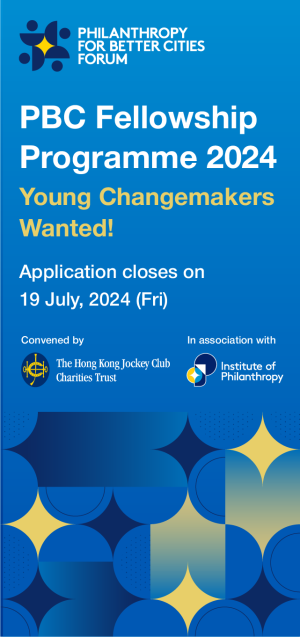´Our region is on fire ́ says Nick Antipov, an LGBT+ defender from Belarus who lives in exile due to his political organising under Lukashenko´s regime.
Those of us from Central and Eastern Europe, the Caucasus, and Central and North Asia (CEECCNA regions) nod in agreement. There is a shared lived experience that trauma-bonds regional organisers, and there is knowing that the crises our communities live in are invisibilised, unrecognised, and protracted.
As a multi-regional activist-led fund, our grounding truth at Dalan Fund is that crises are contextual and situated, and how we define crisis determines how funding responses are built. As social justice organisers on the one hand, and resource justice activists in philanthropy on the other, we merged two of our worlds at the Ariadne and HRFN gatherings in Georgia to hold space for mutual learning and collective preparedness for the crises that unfold in these regions.
And here we were, in Tbilisi where protests against foreign agents’ law were taking place every evening, sharing space among activists (most in forced displacement due to ongoing armed conflicts and exile from their authoritarian governments) and funders, looking at the roots of our shared past, and reflecting on the ongoing crises across CEECCNA.
To situate our political contexts in the movement analysis, together with regional activists, we unpacked a few puzzle pieces and political undercurrents:
Even though the Soviet Union collapsed over three decades ago, the post-Soviet space is still seen as a monolithic entity. ¨A balance is needed between our shared past and the individual paths countries are on, a nuanced approach is critical´ says Anastasia Danilova based in Moldova.
In the CEECCNA regions, we have diverse and distinct experiences and challenges at present. What we share is the Russian imperial influences that make it difficult to have real sovereignty and independence.
´Russian imperialism today refers to Russia’s pursuit of political, economic, and strategic influence beyond its borders, often through assertive or coercive means. This can take various forms, including territorial expansion, economic dominance, or the projection of military power. The impact of Russian imperialism on its periphery, such as former Soviet republics or neighbouring countries, can be profound and multifaceted.´ – Tamta Mikeladze from Georgia.
An activist from Karachay-Cherkessia pointed out that CEECCNA regions have been colonised by Russia for over two centuries. This colonisation was marked by the extermination of Indigenous people followed by several waves of repressions and deportations. We have a multi-generational history of oppression, marginalisation, and genocide as a shared past in the regions, with the Russian full-scale invasion of Ukraine as the latest example.
Shifts do not happen overnight. Restrictions on freedom of speech, assembly, and association is a slowly creeping trend that led us to the erosion of democracy, regressive laws such as foreign agents (latest adopted in Georgia in May, and in Kyrgyzstan in April this year, Azerbaijan in 2014 and Russian Federation in 2012), and so-called “anti-LGBT propaganda” laws. `It is a copy-paste of the Russian law,` – further reflects an activist from Kyrgyzstan, drawing funders attention to the fact that the regions are experiencing a strong turn to authoritarianism as a domino effect of Russian influence or fear of retaliation if not following Russian path, and of accumulated and underfunded human rights crises in the regions.
The puzzle pieces we bring are harsh and gloomy. Yet, there is hope and strength that keeps us all moving. Activists in this space are living proof of inter-generational, cross-regional, and cross-movement practices of resilience, and resistance against the regimes. There are decentralised networks of mutual aid and forms of political trust as infrastructure that organisers have built over the years, sometimes invisible and underground for safety reasons.
As we barely scratch the surface of political contexts and resistance practices in our countries, we (both activists and funders) have realised that we require more space for sharing movement-led political analysis; a greater emphasis on articulating visions and propositions for people-centred futures; and a strategy to connect the dots within CEECCNA, cross-regionally, and globally.
‘How can we play chess, not checkers? How can we preserve time and energy for checkers, and play strategically and proactively?’ – asks Nick Antipov.
How is at the core of Dalan Fund´s creation process: How do we connect the disconnected? How do we act on the signals from CEECCNA movements on the emerging crises and horizon scanning of funders? How can we dismantle the logic of ´one crisis at a time´, when crises across the regions are so deeply intertwined? How do we shift the funding practices for crisis-impacted communities, and bring structural change in funding modalities in and for the CEECCNA regions? How do we show up not just as funders but as co-conspirators with movements in their resistance?
While we are on the journey with our funding community to unpack the How we are clear on What needs to shift and Why. Our ongoing research on Where is the Money for Intersectional Movements in Central Eastern Europe, Caucasus, and Central and North Asia (CEECCNA) Regions? Shows that while civic space is rapidly shrinking and/or has already shrunk, there is a powerful yet severely underfunded resistance to current regimes.
The data from the HRFN´s latest report The Trust Gap shows that in 2019, $4.1 billion was distributed to human rights around the world but only $89 million (2%) was allocated to Eastern Europe and Central Asia. Moreover, just one in ten grant dollars for Eastern Europe and Central Asia is granted to recipients in Eastern Europe and Central Asia as flexible support.
We aspire to see social justice movements and our communities thriving and free, but the latest examples of Kyrgyzstan and Georgia remind us that CEECCNA countries rapidly roll back to authoritarian regimes, and funders need to strategically step up at this critical and defining time in the history of the regions.
Nino Ugrekhelidze (she/her) is a feminist resource justice advocate from Tbilisi, Georgia. She is a Co-Founder and the Lead of Dalan Fund. Nino brings 15 years of experience working with regional and global social justice movements, building context-responsive and community-centred emergency and long-term grantmaking and programmatic strategies.
Ekaterine Danelia (She/her) is a social justice activist based in Tbilisi, Georgia. She is the Monitoring, Evaluation, Accountability, and Learning (MEAL) Coordinator at Dalan Fund. Ekaterine has more than a decade of experience working with civil society organisations and the development field in Georgia.






Comments (0)